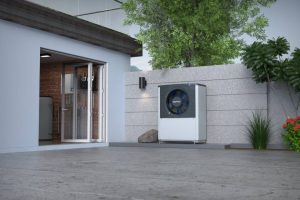 Heat pumps are becoming a popular choice for homeowners looking for an efficient and eco-friendly way to heat their homes. But are they really as environmentally friendly as they seem? Let’s analyze the impact of heat pumps on the environment and compare them to traditional heating systems.
Heat pumps are becoming a popular choice for homeowners looking for an efficient and eco-friendly way to heat their homes. But are they really as environmentally friendly as they seem? Let’s analyze the impact of heat pumps on the environment and compare them to traditional heating systems.
Firstly, let’s look at how heat pumps work. Heat pumps work by extracting heat from the air or ground and transferring it to your home. They are essentially a reverse air conditioner, which means they can also be used to cool your home. Heat pumps are highly efficient because they don’t generate heat like traditional heating systems, such as gas or electric heaters, do. Instead, they move heat from one place to another, making them much more energy efficient.
But how do heat pumps impact the environment? One of the key benefits of heat pumps is that they don’t produce any emissions, unlike traditional heating systems which can release harmful gasses into the atmosphere. Heat pumps run on electricity, which means they are only as clean as the electricity they use. However, as renewable energy sources such as wind and solar become more prevalent, the environmental benefits of heat pumps will only increase.
When compared to traditional heating systems, heat pumps also have a lower carbon footprint. According to a report by the International Energy Agency, heat pumps emit around 50% less CO2 than gas boilers and up to 75% less CO2 than electric heaters. This is because they are much more efficient at converting energy into heat.
Another benefit of heat pumps is their longevity. Heat pumps typically last for around 20 years, compared to gas boilers which typically last for around 10 years. This means that fewer resources are needed to manufacture and install new heating systems, reducing the environmental impact of heating your home.
In terms of cost, heat pumps are generally more expensive to install than traditional heating systems. However, the long-term savings from using a heat pump can be significant, especially if you live in an area with high energy prices. Additionally, there are various incentives and subsidies available for homeowners looking to install a heat pump, which can help to offset the initial cost.
 It’s important to note that the energy consumption of heat pumps can vary depending on a number of factors, including the type of heat pump and the location of your home. For example, air-source heat pumps may be less efficient in cold climates, while ground-source heat pumps may require more energy to install due to the need for underground pipes. Additionally, proper installation and maintenance of a heat pump are crucial for ensuring optimal efficiency and reducing its environmental impact. Overall, they are certainly a step in the right direction toward a more sustainable future.
It’s important to note that the energy consumption of heat pumps can vary depending on a number of factors, including the type of heat pump and the location of your home. For example, air-source heat pumps may be less efficient in cold climates, while ground-source heat pumps may require more energy to install due to the need for underground pipes. Additionally, proper installation and maintenance of a heat pump are crucial for ensuring optimal efficiency and reducing its environmental impact. Overall, they are certainly a step in the right direction toward a more sustainable future.
In conclusion, heat pumps are an environmentally friendly and efficient way to heat your home. While they may be more expensive to install than traditional heating systems, the long-term benefits in terms of energy savings and reduced environmental impact make them a worthwhile investment. As renewable energy sources become more prevalent, the benefits of heat pumps will only increase, making them an even more attractive option for homeowners looking to reduce their carbon footprint.















